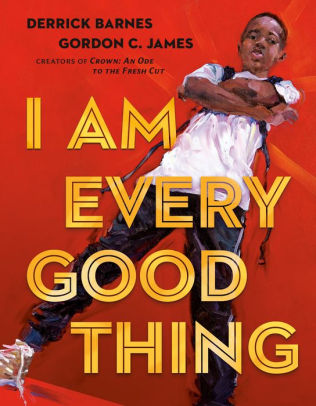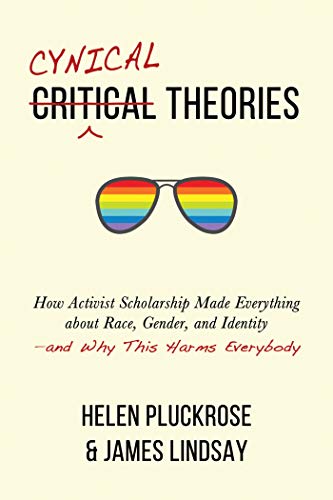Several years ago I had a preacher friend who provided interesting insights into the pulpit life. During the years of our acquaintance, in spite of normal frustrations with his flock, he could usually count on at least a few encouraging words after each sermon. Except for the time he preached about the temptations of Christ. His text was not the famous showdown in the wilderness, but Hebrews 4:15: “For we do not have a high priest who is unable to sympathize with our weakness, but one who in every way has been tempted as we are, yet without sin.” The sermon emphasized that the text means what it says; in every way means every way. Including sexual temptation.
That made the pew contingent very uncomfortable. It wasn’t hard to tell. As my friend recalled it, “Usually I get a pat on the back when the folks line up to shake my hand at the door. Like, ‘Good message, brother,’ or, “That one really hit me where I live.’ But for that sermon I got a Hi or a Nice day or something completely irrelevant, like, ‘Uh . . . I like those pants.’” (Note: this was in the 70s, when pants were more interesting than they are now.)
What does this anecdote have to do with the subject of masturbation? And why am I writing about masturbation? To the second question, I’m writing because I was asked about it, and my initial reluctance was overcome as I thought (and read other Christians’ thoughts) about it.
As to the first question: Jesus has everything to do with everything.
The following is written with Christians in mind; I recognize it will make no sense to anyone else.
The Bible, as so many observers point out, has nothing directly to say about masturbation, good or bad. But of course the Bible speaks to a wide range of issues indirectly and it’s up to us to do the hard work of rightly discerning the word of truth. Not to mention searching out what pleases the Lord (Eph. 5:10).
One reason the Bible is silent on this issue is that it might not have been a big problem in that time and place. People tended to marry young, and when they weren’t enjoying marital bliss, or sleep, they were pouring their energies into hard physical labor, religious festivals, or intense partying (think of those week-long wedding celebrations). And considering the housing options of the time, privacy was not an easy thing to come by.
In the law, sexuality was treated matter-of-factly when it came to physical consequences like monthly periods and male discharges (at least some of which had to be nocturnal emissions). Leviticus gives detailed instructions for purification after each one. Why be purified after a natural function that the Lord himself created? I had some thoughts about that here, but for now it strikes me that these laws concern men and women in isolation from each other. There are no purification rites for married sex (unless it occurs during a woman’s time of “uncleanness”), because that is exactly what those bodily functions facilitated . Lawful sexual intercourse is already pure, and it points beyond itself. It’s about relationship at its most intense, intimate, and productive level, and it reflects something of the intense, intimate, and productive relationship of Father, Son, and Spirit.
Our experience on earth, even in lawful matrimony, often falls well short of this ideal. And turning from these Gates of Splendor to the squirmy subject of masturbation is a big step down: awkward and fraught with guilt. We don’t want to go there. We don’t want the Holy Trinity in our walk-in closets or under our sneaky sheets–and really, can’t we have a little privacy here? Surely there’s a place we can carve out for ourselves alone. There must be a place, not just in our homes but in our heads, where we can retreat for a few minutes and relieve a little pressure, purge of those disturbing fantasies, take a quick dip in mindless therapeutic pleasure and emerge clearheaded and ready to take hold of a straight untangled mission. Just wait here, Lord—I’ll be right back.
But . . . seriously?
We know better. “Know ye not that your bodies are the temple of the Holy Spirit?” That he goes where we go? That we can’t retreat to our inner sanctum and lock him out?
Nobody knew this better than Jesus did. Nobody was indwelt like he was. Still . . . he was tempted in all ways as we are. All ways means all ways.
Don’t we tend to think that it was really kind of easy for him to resist temptation? Except for that last, of going to the cross—of course that was hard. And maybe the one about turning stones to bread when he was hungry. After a 40-day fast, of course he was hungry! So sure, that was probably a tough one too, but the rest of the temptations he was subject to must not have been that difficult for the man-who-was-God. Or so we tend to think.
And that’s how we underestimate Satan, to our great disadvantage. His most potent temptation is this: Take the fast lane. The lure for Christ was to shortcut the process of “learning obedience through suffering” (Heb. 5:8), to reach across the grand redemption plan, to seize the crown that was rightfully his. Isn’t that the heart of temptation for us–to forgo process and go straight for satisfaction in whatever form it appears? Jesus faced this too, in all ways. He knows our every weakness in the biblical sense of experiencing it, not just mentally acknowledging it, Yet without sin. No shortcuts. He took the long hard way of the cross—meaning that, when it was time to claim his rightful crown, he would not be alone. He would take us with him.
Now . . . all this will likely seem hopelessly abstract to the teenage boy or the frustrated single woman. Christian counselors and doctors make good-faith efforts to reconcile biological drives with biblical principles, a tension stretched further by an oversexed culture and delayed marriage. Some grant that masturbation may be a useful therapeutic tool as long as it doesn’t become obsessive, has no pornographic connections, and is divorced as far as possible from erotic thought (like a good deep-tissue massage). I can’t judge the wisdom of that for any one person. Just a few contrasts to keep in mind:
- Sex is intended for relationship. Masturbation is solitary.
- Relationships take work. Masturbation is easy.
- We are intended for perfect union with Christ. Masturbation is the last place we want him.
- This union isn’t sexual, but is better than sex. Masturbation, while it lasts, whispers that there’s nothing better.
My best attempt at practical application is this. If you’ve already given in to this temptation, more times than you care to count, remember that Christ was tempted in all respects as we are. That’s your comfort. Yet without sin—that’s your salvation. You won’t be able to pull him down to your level but he will, in time, bring you up to his. Temptation is a trial but it’s also an opportunity to work on that relationship and begin laying up what will be treasure in heaven: that satisfaction you longed for all your life, fully met and never ending.













